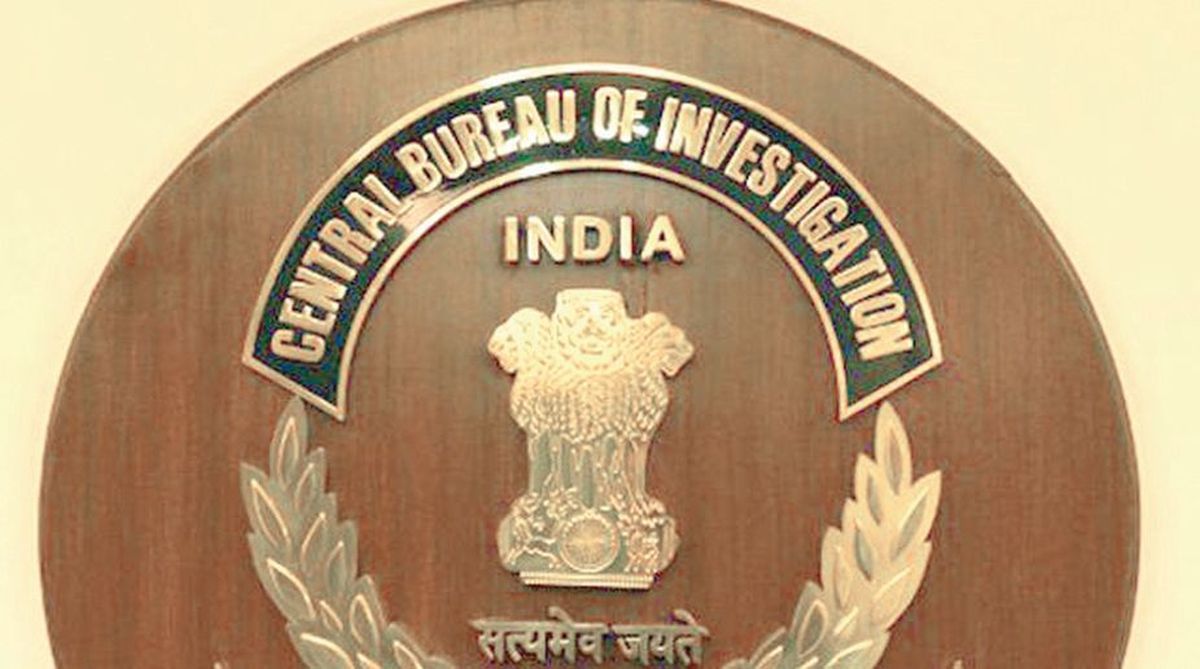SC orders SAD leader Bikram Majithia to appear before SIT in drugs case
A bench of Justice J K Maheshwari and Justice Aravind Kumar said if needed, Majithia will also appear before the SIT on March 18 as well at the same time.
According to clause 4A (3) of the Act, the Committee shall recommend a panel of officers on the basis of seniority, integrity and experience in the investigation of anti-corruption cases and which has to be chosen from amongst the officers belonging to the Indian Police Service.

Central Bureau of Investigation (Photo: SNS)
Pursuant to the Vineet Narain (Jain Hawala) judgment of the Hon’ble Supreme Court, the selection process for the Director CBI has within a span of the last twenty years, already undergone changes twice. Issues, however, have now come to the fore which were perhaps, never visualised earlier and hence a debate may be in order.
Under the directions of the Supreme Court, the superintendence and the administration of Delhi Special Police Establishment (CBI) got vested in the CVC. This had the effect of taking the CBI out of the direct control of the Department of Personnel, Government of India. The Ordinances issued for this purpose for the CBI and the CVC were replaced by Acts of Parliament in 2003. This is when the first change took place. Later, after the enactment of the Lok Pal Act, the Delhi Special Police Establishment Act 1946, was again amended and a new clause at 4A constituting the Committee for appointment of Director was added by a notification on 16 January, 2014. The Committee stipulated in the provision comprised (a) the Prime Minister as Chairperson, (b) Leader of Opposition or Leader of single largest opposition party in the House as member and (c) the Chief Justice of India or judge of the Supreme Court nominated by him as a member.
Advertisement
The provision of inclusion of the Chief Justice of India in the Committee, in all probability, would have been done at the draft bill stage, only after due consultations. But at that point of time perhaps the possibility of certain eventualities cropping up later got overlooked.
Advertisement
Firstly, the Prime Minister and the Leader of the Opposition party, not being in agreement, the casting vote and the final stamp of approval would always be with the CJI. In the event of a petition or a hearing against the Director CBI, in whose selection the CJI had a major role, the latter would, in all probability have to recuse himself. On the other hand, even when the case gets assigned to another bench, the fact that the person had been cleared by none other than the CJI himself would always remain on record. The point is whether Section 4A of the Act should have only mentioned the words, a judge of the Supreme Court nominated by the CJI.
Secondly, according to clause 4A (3) of the Act, the Committee shall recommend a panel of officers on the basis of seniority, integrity and experience in the investigation of anti-corruption cases and which has to be chosen from amongst the officers belonging to the Indian Police Service. It can thus be simply inferred that the entire process would involve the scrutiny of the records of IPS officers, sifting through the background material and career profile summary of each officer in contention and based on these making an assessment on their relative suitability. Even as most of this part of due diligence would have been done at the secretariat level, it may still be a point of debate, as prima facie this process far from being a judicial one, appears to be an executive function of the government.
On the Doctrine of the basic structure of the constitution, Justice (Retd) V.R. Krishna Iyer had stated, “While infallibility is no attribute of a constitution, its fundamental character and basic structure cannot be overlooked.” Chief Justice S.M. Sikri, Shelat and Grover, JJ had for the first time in Kesavananda Bharati case illustrated separation of powers between the legislature, the executive and the judiciary as one of the essentials of the basic structure of the constitution. Since then, this Doctrine of Basic Structure has been referred to in numerous matters by the Apex Court. Accordingly, it may also be seen whether the participation of the CJI in an executive function of the Government, howsoever positive and well meaning it may be, would have the constitutional back up of the separation of powers and the basic structure doctrine.
While the CBI Act was being amended in 2014 these issues had not figured explicitly in public domain, nor were they fully debated, nevertheless, Hon’ Supreme Court will always have the last word on the interpretation of the Constitution and the Law.
(The writer is a former Governor of Uttarakhand and former Commissioner of Delhi Police)
Advertisement